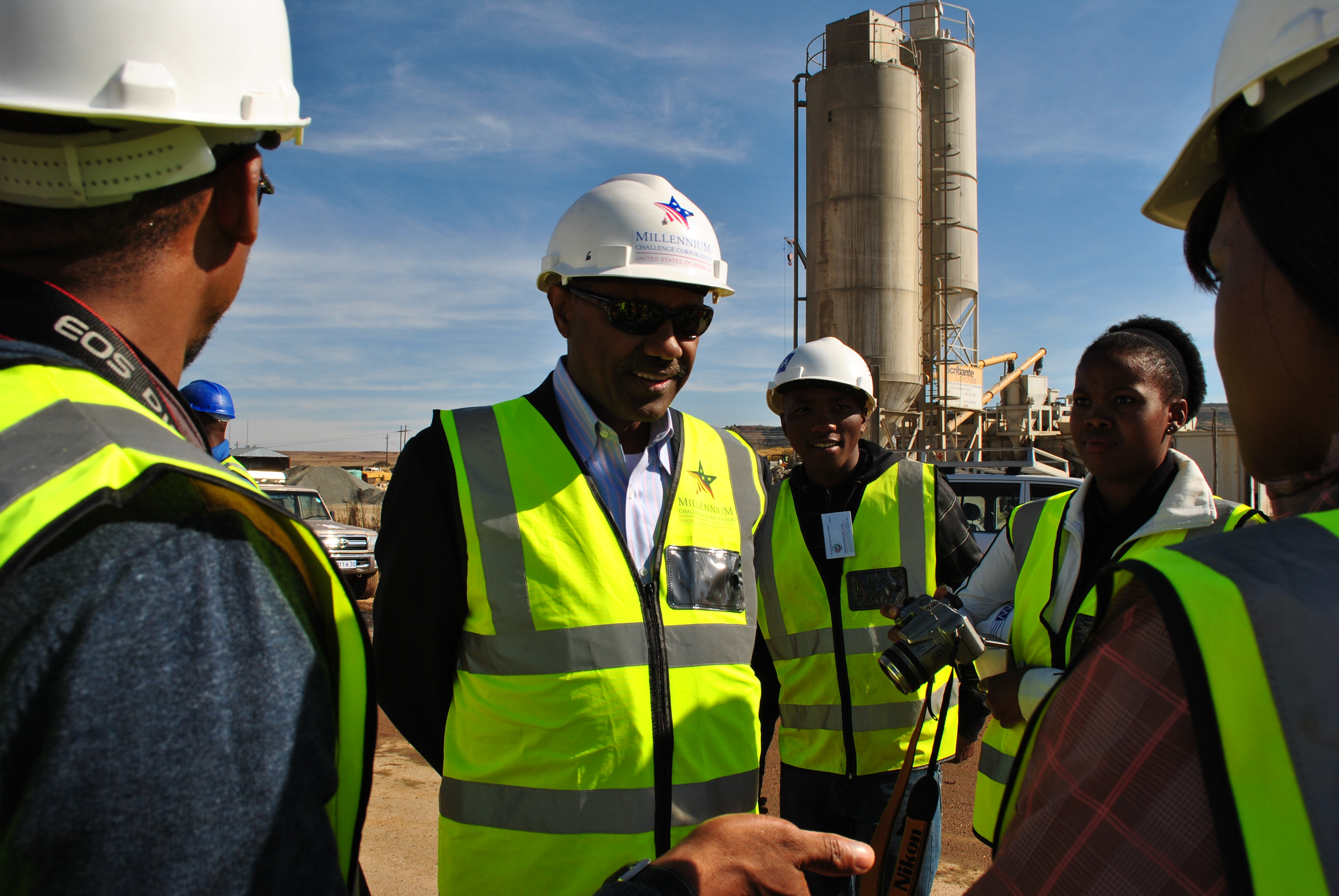
MCC is marking 10 years of poverty reduction through economic growth. CEO Daniel W. Yohannes talks with workers at a dam in Lesotho during a visit in 2013.
With great excitement and pride, I join MCC’s friends here at home and around the world to celebrate a milestone in our history: our 10th anniversary. Through the promise of our words and the reality of our actions, MCC has partnered with the world’s poor to create new opportunities for a more hopeful, prosperous future.
Over the past decade, MCC changed the conversation when it comes to how the business of development is done. It’s been said that MCC was created to put into practice the principles that many in development long viewed as essential for delivering sustainable solutions for reducing poverty and generating economic growth:
- Selectively working with countries that make tough policy and institutional reforms;
- Development not as aid but as investments that follow fundamental business logic, with sound economic returns that lead to raising the incomes of the poor and fueling the engine of private sector-led growth;
- Partnership that replaces patronage and demands mutual responsibility to achieve measurable targets and results during a strict, time-limited engagement;
- Actively embracing monitoring and evaluation to assess performance, make course corrections as needed and contribute to the body of evidence and learning that maximizes the effectiveness and impact of our investments to help the poor; and
- Accountability and transparency so that the light shines on all we do.
And it’s magnificent to see what our partnerships have accomplished because of how we operate.
- We built roads and bridges around the world, from Vanuatu to Mongolia to El Salvador.
- We improved irrigation canals in Armenia and repaired the gas pipeline in Georgia.
- We delivered land titles in Mozambique, including in the joint names of husbands and wives.
- We made health care, education, electricity, and clean energy possible with health clinics in Lesotho, schools in Ghana, a functional literacy program in Morocco, electrical connections in Zanzibar, and cookstoves in Mongolia.
- We helped farmers and mobile fish vendors make a living with agricultural business centers in Ghana and motorized bikes with ice chests in Morocco.
In these ways and more—including pushing policy reforms; insisting on high environmental, social, fiscal, and procurement standards; advancing gender equality; and engaging the private sector—we are changing the lives of many of the world’s poor for the better.
Building on our strong foundation, I want to see MCC continue to excel as we embark on a second decade of success. I believe doing this means focusing on the evidence. Our commitment to evidence-based decision making helps us learn, share that learning, improve, and maximize the impact of our programs for the world’s poor. Our next 10 years will be defined by how well we accept the challenge to be both role models for what works in development based on the evidence as well as change agents eager to think and act boldly to make development as effective as possible.
If the last 10 years give us any insights, I am confident that MCC will meet the challenges ahead and continue to lead the way in the fight against global poverty.
Check back regularly throughout the year for details on anniversary activities and special publications marking MCC’s 10th.

